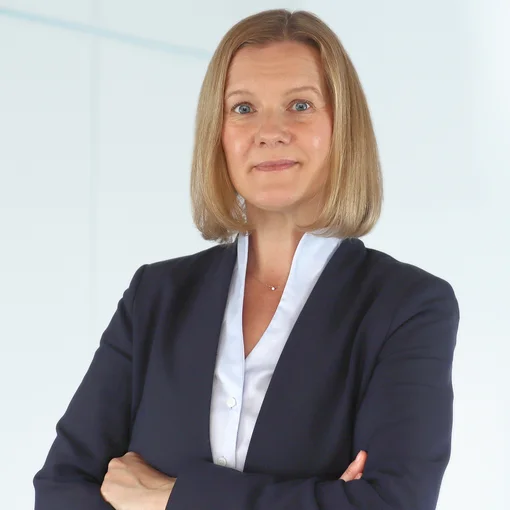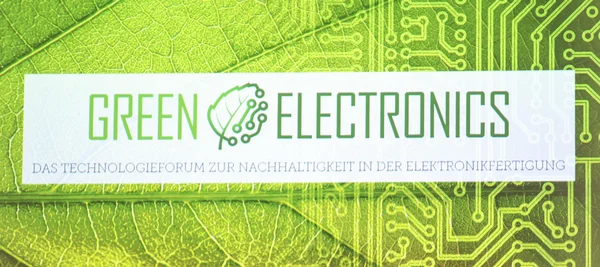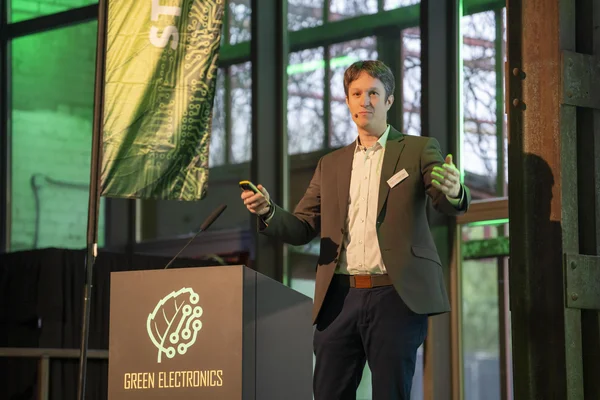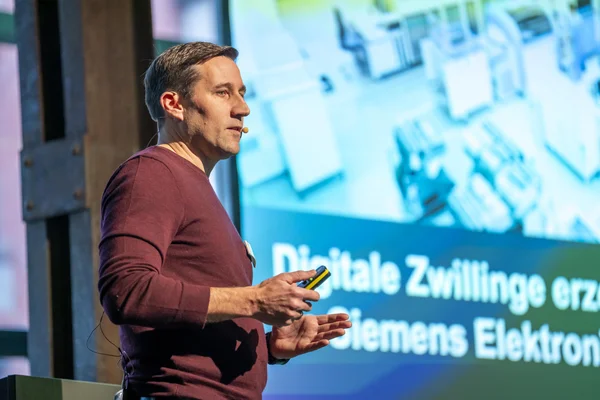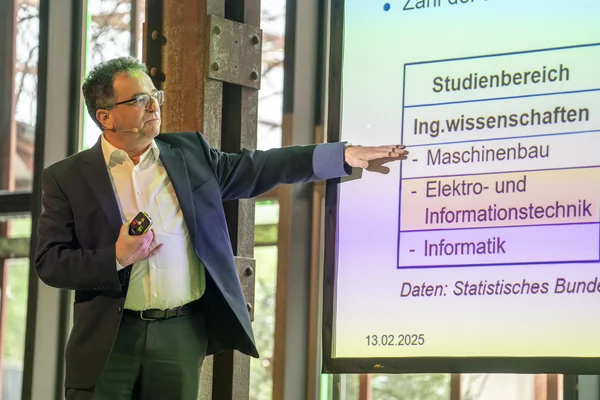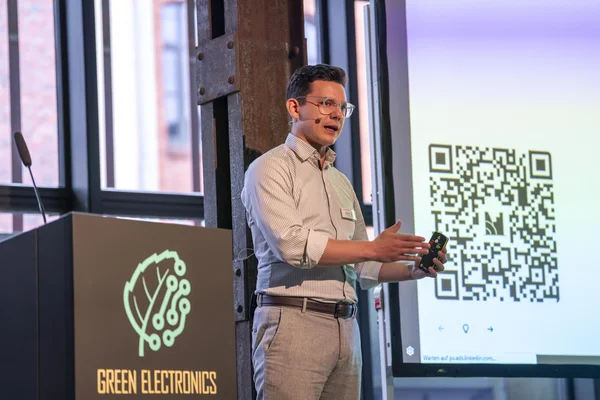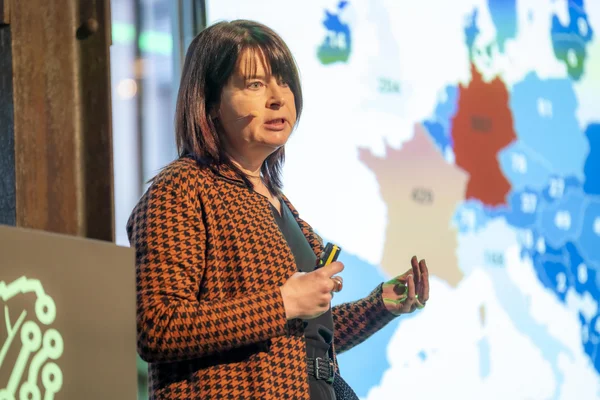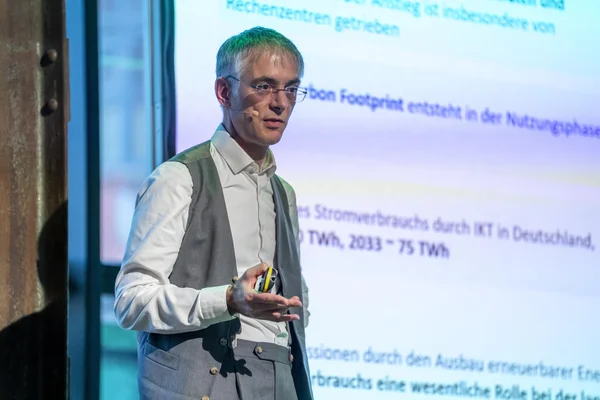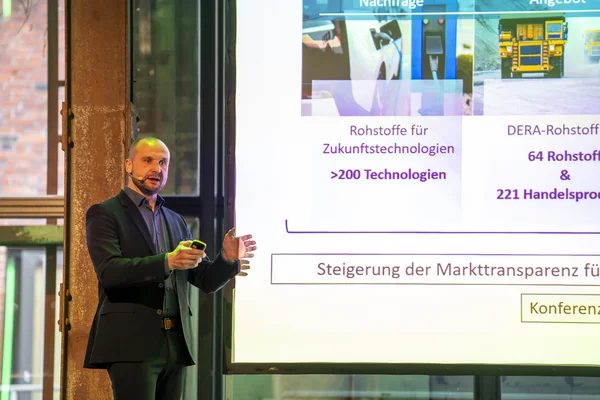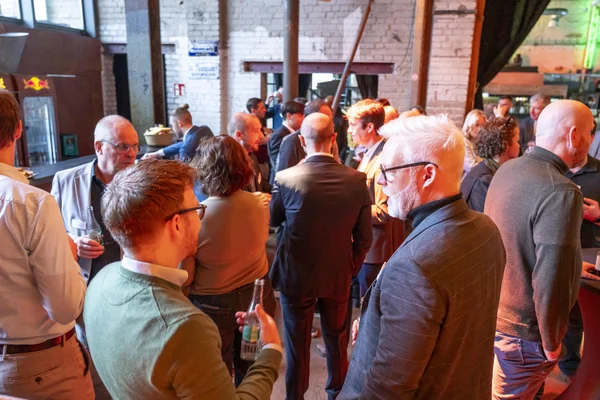Green Electronics 2025
Nachhaltigkeit als Gamechanger in der Elektronikfertigung
On February 12 and 13, 2025, the second edition of the Green Electronics Technology Forum took place at the Dr. Thompson's soap factory in Düsseldorf. Organized by Stannol, MTM Ruhrzinn, kolb Cleaning Technology and Stego Elektrotechnik, the event once again brought together experts from industry, science and associations to discuss sustainable practices in electronics manufacturing.
The speakers
The event was moderated for the second time by Sabrina Nickel, who led through the program with her expertise. This year's speakers included:
- Prof. Dr. Rüdiger Hahn (Heinrich Heine University Düsseldorf), who shed light on the economic aspects of sustainability management
- Johannes Röck (Siemens Digital Industries), who showed how digitalization technologies can increase sustainability
- Prof. Dr.-Ing. Markus Glück (Aalen University), who spoke about the role of engineering for a world worth living in
- Kilian Schwaiger (Verband Deutscher Metallhändler und Recycler e. V.), who discussed the circular economy as a strategic element
- Dr. Mareike Haaß (in4ma), who analyzed the state of sustainability in the EMS industry
- Dr. Nils Nissen (Fraunhofer IZM), who reported on greener electronics from Germany
- Dipl. Geol. Michael Schmidt (German Mineral Resources Agency), who gave an outlook on the supply of raw materials until 2030
Sustainability management as an economic success factor
In his keynote speech, Prof. Dr. Rüdiger Hahn from Heinrich Heine University Düsseldorf posed the question of when sustainability also pays off in microeconomic terms. He emphasized that sustainable action can make sense not only ethically but also economically if it is strategically integrated into corporate management.
He emphasized that the positive correlation between sustainability and company performance has been empirically proven many times over. In addition, sustainability risks are becoming more and more pressing, such as increasing legal and reputational risks, physical risks due to extreme weather events or competitive risks due to inadequate preparation for various sustainability requirements.
Prof. Dr. Hahn saw clear opportunities in the area of sustainable action in the fact that good sustainability management can have a positive impact on both sales and costs - as well as employee satisfaction. Another opportunity is to integrate sustainability as an integral part of the brand message.
His conclusion: there is more "success factor" in sustainability management than is often assumed - even many things that cannot be calculated in figures are still worthwhile. He emphasized that sustainability is a normative and ethical concept and not per se a means of maximizing profits. He also warned against focusing too narrowly on short-term profits and pleaded for a holistic approach that harmonizes social, ecological and economic goals.
Digitalization as an enabler for green production
Johannes Röck from Siemens Digital Industries demonstrated how digital technologies can contribute to increasing sustainability and named digital twins and energy efficiency management as key technologies.
With the help of digital type plates, which can be called up via an ID link on the respective Siemens device, technical data, operating instructions or certificates, for example, can be called up online in the browser.
For just one type of module alone, these ID links could save around 2.5 million A4 sheets of paper per year - equivalent to thetotal CO2 emissions of 27 cars.
Using the Simatic Energy Management System, Johannes Röck also showed how the energy consumption of machines can be significantly reduced through targeted data analysis and action planning - in one case study by up to 64 percent. He emphasized that resource transparency is a key factor for sustainability and that digitalization should extend from the machine to the company.
Engineering for a world worth living in
In his presentation, Prof. Dr.-Ing. Markus Glück emphasized that 80 percent of sustainability costs are determined in the first 20 percent of product development. Consequently, the main responsibility for the sustainability of a product or service lies in the hands of product planning and development.
He therefore advocated holistic engineering that takes the circular economy and ethical aspects into account from the outset. An ethical compass must become the leading decision-making criterion in product development.
It is important to sensitize the next generation of engineers to this topic, as they are pioneers of modern, holistic engineering. Engineers can assume responsibility by setting the course for areas such as water consumption, process management, raw material and energy requirements, as well as raw material extraction, material selection, purchasing, processing, logistics and transportation with their designs and material decisions. There is an urgent need to think and act in cycles - a "design for circularity".
Circular economy: control over material flows
Kilian Schwaiger from the Association of German Metal Dealers and Recyclers discussed the importance of the circular economy and pointed out a patent that could affect the recycling industry. He emphasized the need for fair market access and the balance between protecting innovation and competition.
Should the patent become the standard, market competitors would have to pay patent fees or work directly with the patent holder, which could significantly change the industry.
Sustainability in the EMS industry
Dr. Mareike Haaß from in4ma presented current analyses on sustainability in the EMS industry. She reported that around a third of EMS companies in the DACH region are actively pursuing sustainability issues.
It is striking that the size of the company is less decisive than the attitude of the management level: it often depends on the attitude of the management or the owner whether sustainability plays a role in the company.
According to the study, environmental measures are primarily implemented when they make economic sense. Concrete figures were rarely mentioned, and companies often remained vague. Dr. Haaß emphasized the importance of transparency and the need not only to report, but also to implement actual measures in the area of production processes.
Her conclusion: in future, transparent and comprehensive documentation and communication on sustainability will be unavoidable.
Greener electronics from Germany
Dr. Nils Nissen from Fraunhofer IZM presented the Green ICT @ FMD competence center and emphasized that although there is no such thing as 100% green electronics, there are many ways to make them more sustainable.
For example, it is currently not possible to produce a truly environmentally friendly printed circuit board, but it is possible to achieve greater sustainability through less material loss and reduced use of chemicals in production, through more durable or repairable components or through better recyclability.
He emphasized that significant progress could be made through targeted measures in design and production. For example, detailed improvements to individual components and materials are important, as is a relocation of production or new regional chains in which communication overheads, know-how protection, flexible, efficient production and environmental indicators come together.
Raw material supply until 2030
Michael Schmidt from the German Mineral Resources Agency gave an outlook on the supply of raw materials for the energy transition and pointed out the geopolitical challenges associated with this. Lithium, copper and silicon are particularly important raw materials for wind and solar energy. Current developments in the area of the energy transition and the sustainable use of resources pose a number of challenges.
According to a sustainability scenario by the International Energy Agency (IEA) up to 2030, the targets are definitely achievable. Nevertheless, there are significant obstacles to overcome: Some raw materials that are crucial for renewable energies show high demand shares and strong market concentration. In Europe, the solar industry is virtually non-existent, while the wind industry is facing considerable difficulties.
Germany and the EU are also heavily dependent on imports of many raw materials and components - particularly from China. This is particularly evident in the area of battery storage, which is essential for storing solar and wind energy in order to successfully implement the energy transition. Michael Schmidt therefore emphasized the need to establish strategic raw material partnerships and increase recycling quotas in order to ensure security of supply.
Networking and exchange
In addition to the specialist presentations, Green Electronics 2025 offered numerous opportunities for networking. The evening before, participants were able to get to know each other better during an Altbier tour and a relaxed get-together. There was also plenty of time for discussion and networking during the event.
Conclusion and outlook
Green Electronics 2025 has shown that sustainability in the electronics industry is no longer an optional goal, but a strategic imperative. By integrating digitalization, circular economy and responsible management, companies can benefit not only ecologically but also economically. Looking to the future, it is clear that companies that invest in sustainable practices early on will benefit in the long term.
The next Green Electronics is planned for 2027. Interested companies and experts are cordially invited to actively participate in shaping a more sustainable electronics industry!
Image sources: Jochen Tack
Contact us
